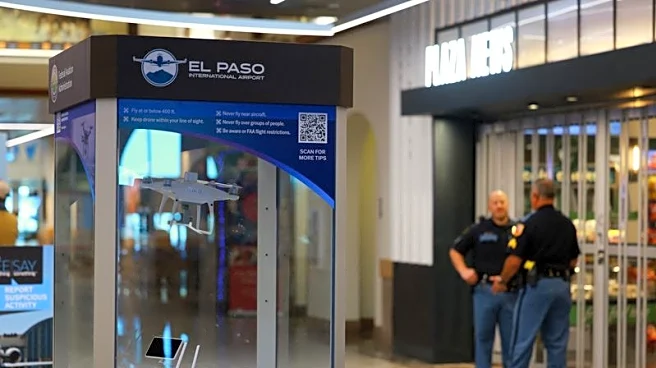What's Happening?
Israeli Prime Minister Benjamin Netanyahu announced that his government has approved a plan for the release of all remaining hostages in Gaza. This development is a component of President Trump's peace plan aimed at ending the conflict in Gaza, which has persisted for over two years. The approval marks a significant step towards resolving the ongoing hostilities in the region. Will Todman, a senior fellow at the Center for Strategic and International Studies' Middle East program, provided insights on the matter during a segment on 'The Daily Report.'
Why It's Important?
The approval of the hostage release plan is a critical move in the broader context of Middle East peace efforts. It signifies progress in President Trump's peace initiative, which seeks to stabilize the region and reduce tensions. The release of hostages could lead to improved relations between conflicting parties and potentially pave the way for further diplomatic negotiations. This development may also impact U.S. foreign policy, as it aligns with efforts to promote peace and security in the Middle East.
What's Next?
Following the approval of the plan, the next steps will likely involve the logistical arrangements for the actual release of hostages. This process may require coordination between various stakeholders, including international organizations and local authorities. The successful implementation of the plan could lead to further diplomatic engagements and discussions aimed at achieving lasting peace in the region. Observers will be watching closely to see how this development influences future peace talks and regional stability.
Beyond the Headlines
The ethical implications of hostage release negotiations are complex, involving considerations of human rights and international law. The decision to release hostages as part of a peace plan raises questions about the balance between humanitarian concerns and political strategy. Additionally, the long-term impact on regional dynamics and the precedent set by such agreements could influence future conflict resolution efforts.











